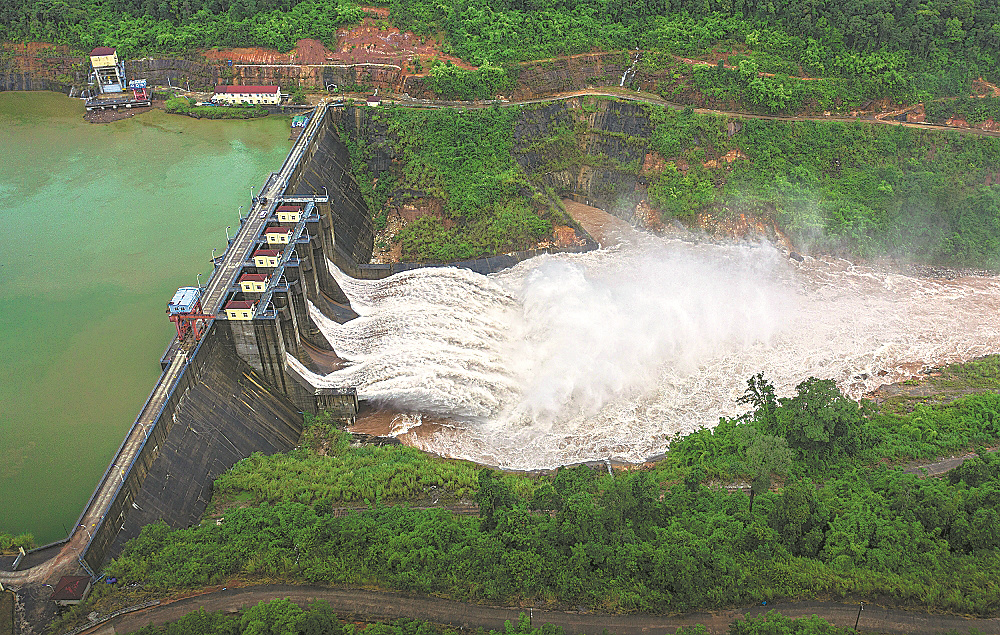
The Lower Stung Russei Chrum Hydropower Station, located on the Stung Russei Chrum River in Koh Kong province, Cambodia, developed by China's Huadian group, helps promote local low-carbon development and green energy transition. XINHUA
Oct.19, 2023 -- The Ministry of Water Resources has established a global network of partnerships that involves dozens of countries and international organizations, as it strives to promote cooperation on water resources management under the Belt and Road Initiative.
Li Ge, a leading official with the ministry's Department of International Cooperation, Science and Technology, made the remarks in the lead-up to the Third Belt and Road Forum for International Cooperation this week.
The ministry has signed 72 bilateral cooperation agreements with 57 countries, and established 32 bilateral cooperation and exchange mechanisms, he said. It has also reached multilateral cooperation treaties with eight international organizations and relevant nations, he added.
Thanks to this progress, "a comprehensive, multilevel, multifaceted global network of partnerships in water resources management" has been formed, Li said.
He said that capacity building was an important part of the ministry's cooperation with countries involved in the initiative.
To date, he said, the ministry has provided training programs for over 5,000 researchers, officials, enterprise executives and diplomats from BRI countries. It has also subsidized more than 200 people to study in China for master's degrees in water resources management.
Institutions affiliated with the ministry have set up technology transfer and capacity building centers in Pakistan, Indonesia, Serbia, Ethiopia and Senegal, he said.
In China, a BRI joint training center for technologies relating to ecological conservation of rivers and lakes and a training base for talents needed to promote BRI cooperation have also been launched, as the ministry strives to build more platforms for international exchanges on water resources management, he added.
Li highlighted fruitful results from the ministry's cooperation with BRI countries, which have significantly benefited local residents.
Institutions affiliated with the ministry have carried out over 100 programs in 42 countries and regions around the globe, including those for dam safety, flood control and rural water supply, Li said. Total investment in these programs had reached roughly 52 billion yuan ($7.1 billion).
In a move to address rural residents' difficulties in gaining access to safe drinking water, for instance, China launched the Lancang-Mekong Sweet Spring Project in Cambodia, Laos and Myanmar, in early 2020, he said. The project aims to explore solutions that can be adapted to different local conditions through technology demonstration projects.
By the end of last year, 66 demonstration projects had been built, which helped ensure safe drinking water for almost 10,000 residents, he said.
Li cited the Dasu Hydropower Project, which China is building in Pakistan, as another example. At its peak, the project will provide 8,000 job opportunities, he said.
After it is completed, it is expected to generate 12 billion kilowatt hours of clean energy every year.
These programs "have not only provided new drivers of economic growth for BRI countries and brought them advanced technologies on water resources management, but also effectively strengthened local infrastructure and improved people's well-being", Li said.
By: Hou Liqiang


